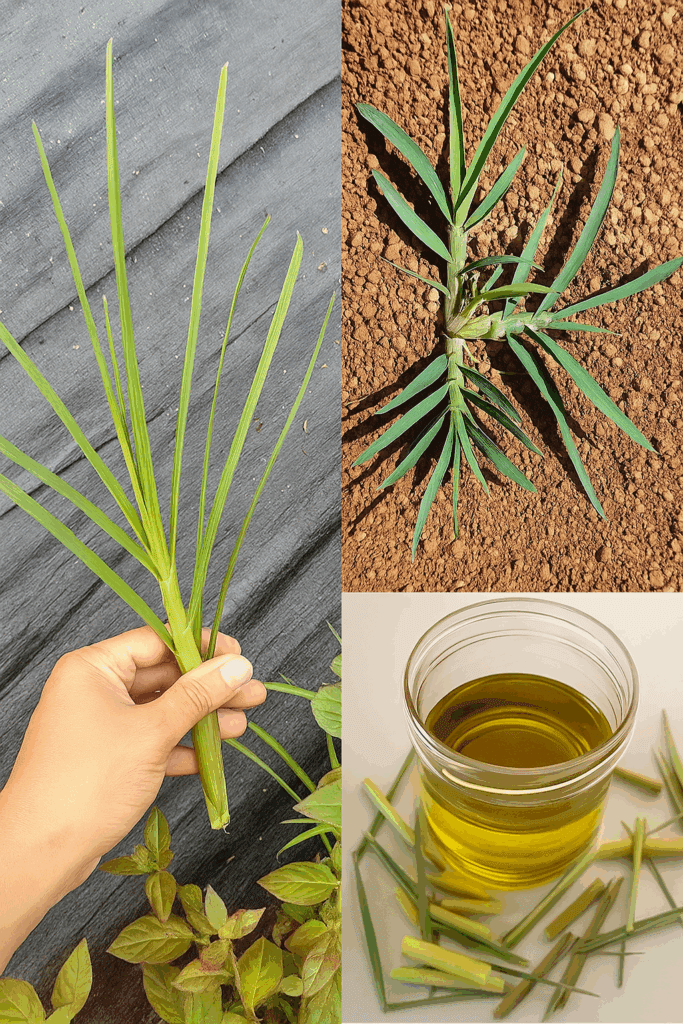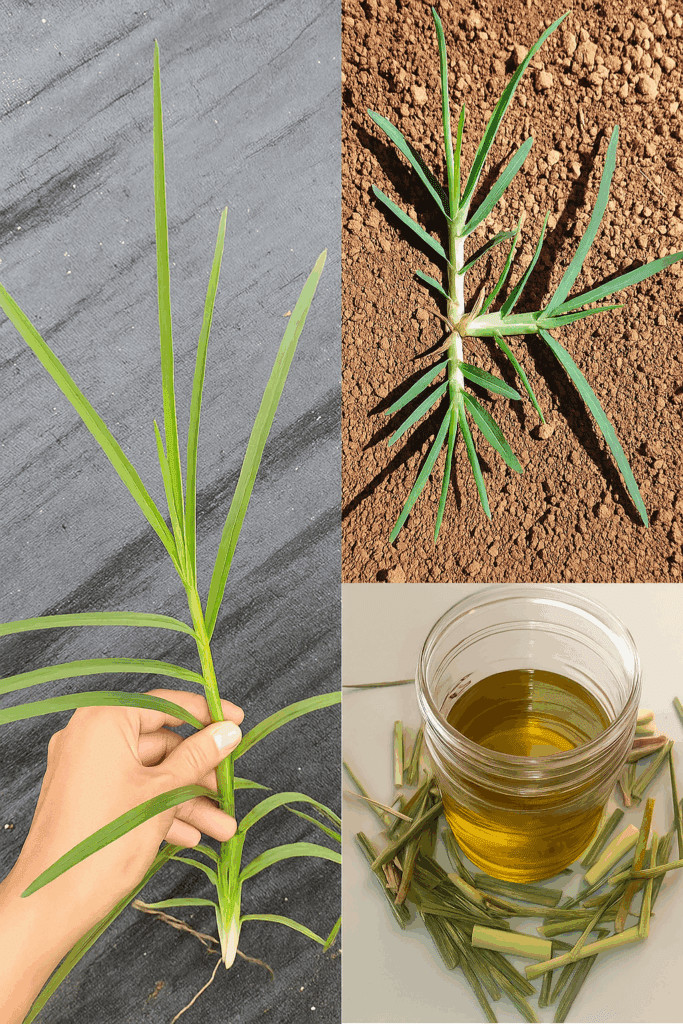It hides in plain sight. You’ve probably walked past it a thousand times—growing stubbornly through sidewalk cracks, creeping across your garden beds, or springing up in empty fields. But what if this overlooked plant, commonly yanked out and tossed aside, was actually one of the most versatile healing herbs available?
Goosegrass (Eleusine indica), often dismissed as just another weed, has been used for centuries in folk medicine from Asia to Africa. Packed with gentle yet effective compounds, it’s traditionally valued for everything from kidney and liver support to calming skin flare-ups and easing digestion.
Ready to unlock the quiet power of this wild herb? Here are 20 surprising benefits of Goosegrass—plus exactly how to use it safely and effectively at home.

🌿 1. Flushes Out Toxins
Your body constantly works to detox itself—and Goosegrass gives it a helping hand. This herb supports the natural cleansing process by aiding the elimination of waste through urine and sweat.
How to Use: Brew a cup of Goosegrass tea once daily for 5 to 7 days.
💧 2. Supports Kidney Health
Goosegrass gently stimulates kidney function, helping to clear out waste and maintain fluid balance—perfect for those looking to support these vital organs naturally.
How to Use: Drink a mild tea made from fresh or dried Goosegrass leaves each morning.
🔥 3. Reduces Swelling
Whether you’re dealing with inflamed joints or tissue puffiness, Goosegrass can help cool the area and reduce irritation.
How to Use: Soak a clean cloth in warm Goosegrass tea and apply it as a compress to swollen areas.
🚽 4. Eases Painful Urination
Traditionally used to reduce urinary discomfort, Goosegrass tea helps soothe irritation in the urinary tract.
How to Use: Drink half a cup of tea, twice a day, until symptoms improve.
🌸 5. Helps with UTI Symptoms
This humble plant is often used to gently cleanse the urinary tract and support healing from mild infections.
How to Use: Boil Goosegrass leaves in water, cool, and drink twice a day.
🌡️ 6. Lowers Fever
Goosegrass is considered a natural cooling herb, helping the body regulate temperature during mild fevers.
How to Use: Drink cooled Goosegrass tea every few hours when fever symptoms appear.
🩸 7. Stops Nosebleeds
Applied directly, the juice from fresh leaves may help stop bleeding from minor nasal injuries.
How to Use: Lightly crush fresh leaves and gently apply to the nostrils.
🥗 8. Improves Digestion
Bloated? Gassy? Goosegrass has a calming effect on the gut and may help restore comfort after meals.
How to Use: Sip a warm, mild tea shortly after eating.
🍃 9. Eases Constipation
Known for its gentle laxative action, Goosegrass can help encourage more regular bowel movements.
How to Use: Drink a stronger tea first thing in the morning.
🌿 10. Clears Skin Rashes
With its soothing and cleansing qualities, Goosegrass has long been applied to itchy or irritated skin.
How to Use: Dip a clean cloth in cooled tea and gently dab onto the rash.
👄 11. Soothes Mouth Sores
From minor ulcers to gum irritation, Goosegrass makes a gentle herbal rinse.
How to Use: Swish with lukewarm Goosegrass tea two to three times a day.

🤕 12. Relieves Headaches
Its mild anti-inflammatory and cooling nature may help relieve stress-related or heat-induced headaches.
How to Use: Apply a cool compress of Goosegrass tea to your forehead and rest.
🌬️ 13. Calms Coughs
Traditionally used to ease dry, tickly coughs, Goosegrass works as a gentle expectorant.
How to Use: Sip warm tea slowly, twice a day.
🦴 14. Reduces Joint Pain
It’s often applied externally to reduce aching or stiffness in knees, elbows, and other joints.
How to Use: Soak a cloth in warm tea and wrap around the sore area.
🛡️ 15. Fights Minor Infections
Mild antibacterial properties make Goosegrass useful for washing small wounds and scratches.
How to Use: Rinse affected skin or minor cuts with cooled tea.
🌬️ 16. Freshens Breath
Forget chemical mouthwash—Goosegrass tea works as a simple herbal rinse to neutralize odor.
How to Use: Rinse your mouth with tea after brushing your teeth.
💚 17. Supports Liver Function
Your liver is the body’s detox hero. Goosegrass is believed to support this organ’s efforts naturally.
How to Use: Drink one cup of tea daily for a few days every month.
👁️ 18. Reduces Eye Irritation (External Use Only)
Feeling tired or dry-eyed? Goosegrass can offer relief when applied gently over closed lids.
How to Use: Soak a clean cloth in cooled tea and place over eyes for 10–15 minutes.
💦 19. Acts as a Natural Diuretic
By increasing urine flow, Goosegrass helps your body eliminate excess fluid and reduce bloating.
How to Use: Drink a cup of tea mid-morning (avoid close to bedtime).
🌟 20. Boosts General Wellness
Goosegrass isn’t just for emergencies. Many traditional healers recommend it as part of a weekly wellness routine to stay balanced and resilient.
How to Use: Enjoy a cup of tea once or twice a week as part of your herbal rotation.
🍵 How to Make Goosegrass Tea
- Take 1 teaspoon of dried Goosegrass or a small handful of fresh leaves
- Boil in 1 cup of water for 10 minutes
- Strain, cool slightly, and drink
For external use, always let the tea cool fully before applying it to skin or eyes.
⚠️ Important Notes Before You Use Goosegrass
While Goosegrass is generally safe for occasional use, it’s essential to follow a few safety guidelines:
- Only harvest from clean, pesticide-free areas
- Avoid during pregnancy or breastfeeding unless supervised by a professional
- Always talk to your healthcare provider if you’re managing chronic conditions or taking medication
🌿 A Weed with Worth
Goosegrass may not look glamorous, but its gentle support for digestion, skin, kidneys, and the immune system has earned it a place in traditional healing for a reason. Whether you sip it as tea, apply it to your skin, or use it as part of a mindful wellness routine, this modest plant delivers more than meets the eye.
Next time you spot it growing wild, you might want to think twice before pulling it up. Sometimes, the best remedies are right under your feet.
📝 This article is for informational purposes only. Always consult a healthcare provider before using herbs, especially if you are pregnant, nursing, taking medication, or managing a medical condition.









